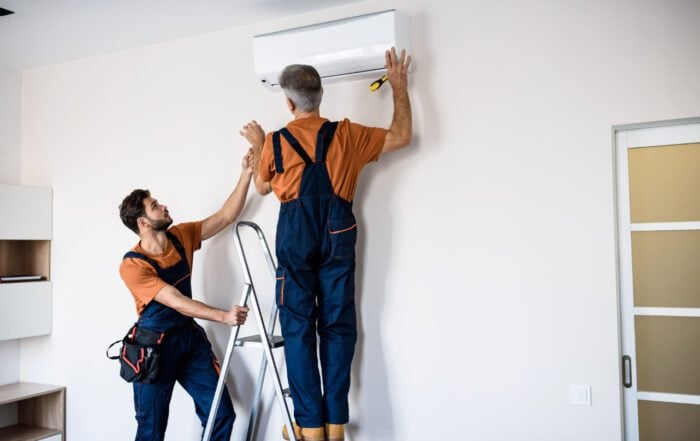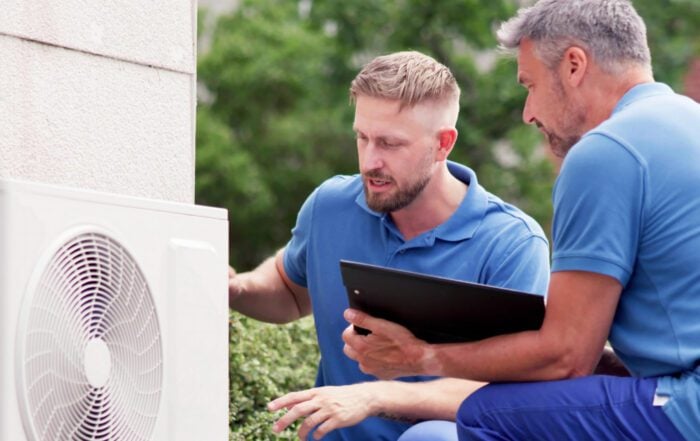You get up in the morning, and you turn on a light switch in every room you enter. Next, you open your refrigerator door to get out your breakfast ingredients. Then you start the coffee pot to brew a cup or two before you head off to work.
Once you’re in the office, you sit down at your computer, boot it up, and begin checking emails. Your wireless desk-phone rings throughout the day. You occasionally hear the air conditioning system fire up to keep you and your coworkers comfortable.
When you finally come home, you press your garage door opener, so you don’t have to open the giant door by hand. You pop leftovers from last night in the microwave for dinner, and you finish off your evening by catching the Indians game on the television.
There are very few moments of your day that aren’t powered by electricity.
While electricity is a prominent source of power for all of our appliances, machines, and daily uses, that power also comes with some degree of danger. The power supply from your home has enough energy to be hazardous when not handled properly. It can spark house fires and even cause death by electrocution.
Electrical safety is of the utmost importance in our homes and offices. We’ll walk you through all the steps you need to take to keep your family safe.
Electrical Safety and Appliances

Make sure all of your appliances are approved by a reputable laboratory. You should be able to find the stamp of approval on the outside of the box and in the product manual.
Unplug and store unused appliances. Keep all appliances not in use in a safe area, away from children, pets, and water.
Do not crowd heat-generating appliances. These machines need a few inches of clearance for airflow which keeps them from overheating. You should also not place flammable material such as toys or cloth on or around these appliances.
Don’t modify anything. Don’t attempt to adjust, upgrade, or repair appliances on your own. This will void the warranty, and it can also short-out the electrical circuitry, damaging the product and causing a fire hazard.
Avoid water. Keep all electrical appliances away from water and water sources, and do not operate appliances with wet hands or while using water. Water is a known electrical conductor due to impurities found in it – the ions separate and are drawn to the opposing positive and negative ends of the electrical current, closing the circuit.
Replace faulty appliances. Even appliances which produce a mild electrical shock should be replaced. It’s a sign of faulty wiring which can eventually produce sparks or electrocution.
Electrical Safety and Cords

Check regularly. Appliance and extension cords can fray, tear, crack, or kink over time, which can cause an electrical safety hazard. Check cords before each use to prevent electrocution or fire. If you notice that a cable is damaged in any way, throw it out and replace it with a new cord.
Keep plugs completely plugged in. Loose cords in an outlet leave space in the circuit and can potentially start a fire behind the wall.
Do not modify a cord or plug. NEVER file or clip off the third prong of a plug. This prong – also called the “ground” – is a fail-safe to protect the appliance from power surges. Removing the ground-prong causes a fire hazard as well as adds the possibility of electrocution when you touch the tool or appliance. You should also never staple or nail a cord in place – this can disrupt the electrical current or extend it, causing electrocution when touched. If you must, tape the cord to the wall or floor instead.
Don’t over-use extension cords. These cords are meant to be a temporary fix for a problem, so they should not be used for extended periods of time.
Remove closest to the outlet. Tugging on cords farther away from the outlet can stretch it and damage the wiring. Always remove a cord from the plug at the outlet.
Electrical Safety and Outlets

Use plastic caps. Unprotected outlets can be an electrical safety danger to small children in the home. Cover any unused outlet with a plastic safety cap.
Outlet covers should always be in place. Don’t leave wires exposed where small children and pets can access them. If you have outlets on the outside walls of your home, make sure they’re capped with secure plates and covers, so the elements don’t reach the wiring.
Singular power strips. Older homes and buildings are prone to having few wall-outlets. A quick solution is to use power strips, but overloading outlets with multiple adapters can be hazardous. Talk to your local electrician about adding new sockets or relocate cords.
Check for size. If a plug does not fit into an outlet, do not force it. Likewise, select a different location if the prongs are too loose.
Have ground fault circuit interrupters. It’s always best to avoid areas with water when it comes to electrical safety, but it’s not always possible. Install ground fault circuit interrupters in rooms such as the bathroom, kitchen, or pool area where water could potentially come in contact with electrical appliances.
Check for heat. If you notice that an outlet is warm or hot to the touch, do not plug anything into it until it has been checked or replaced by a qualified professional.
Electrical Safety and Lights

Use the correct number of watts. Make sure you are always replacing burnt or broken bulbs with the right wattage. If you choose a replacement bulb that has the right size base but is a much higher wattage, the fixture can overheat. You’ll also want to make sure the bulb is screwed tightly into the socket. Loose bulbs can short out or cause sparks.
Replace with CFL and LED bulbs. If you can, try to switch to using compact fluorescent or LED bulbs which are more efficient than other lighting options – they provide the same level of light but use less electricity. However, it’s important to note that if a CFL bulb breaks, open a window and have your family leave the room for 15 minutes. These bulbs contain a level of mercury which can be dangerous in the immediate surroundings. Once it disperses into fresh air, it’s safe to reenter the room for clean up.
Turn the light off. Never change a light while lit – always make sure the fixture is turned off before replacing a bulb. Changing a light bulb while the fixture is still on has the potential to burn or shock.
Light switches. Replace any switch which is warm to the touch or flickers when on.
Outdoor Electrical Safety

Stay away from electrical lines. Don’t let plants such as trees and vines get too close to power lines. Keep them trimmed back as much as possible. If they get too close (within 10 feet) to an electrical line, contact a professional service rather than try to complete the task yourself. NEVER approach a downed power line. Even if it appears to be dead, it can still produce a current. Rather than investigate, call 911 and your utility company.
Storms and electric do not mix. Never go swimming during an electrical storm as the impurities in water cause it to be a conductor.
Don’t forget:
When moving into a new home or apartment, always make sure you know where the electrical panel or fuse box is located in case of emergencies. You don’t want to have to stumble around in the dark trying to find it when you have a power failure or electrical issue.
If you do encounter an electrical fire, never throw water on it. Because water is an electrical conductor, it can cause the fire to grow. Instead, use a chemical fire extinguisher rated for electrical fires.
You should also never attempt any electrical repairs on your own. Always call a professional like Stack Heating, Cooling, Plumbing & Electrical to fix any problems you may have with your home’s electrical wiring, so you and your family stay safe.
Have Any Questions?
If this is an emergency please call 440-937-9134.
Otherwise, please feel free to call us or submit this form to schedule an appointment for service or request an estimate. We will contact you shortly!



